 |
| A violin by Nicola Amati, Cremona 1669, at the Metropolitan Museum of Art, New York |
For hundreds of years, the best violins makers have been making exquisite works of art, and Music Geeks around the world can fully appreciate every detail of these fine masterpieces. But where are the best places in the world for us Orch. Dorks to gather and learn more about the finest violins ever made? There are fantastic violin museums all over the world.
The first place I would recommend is the
The National Music Museum in Vermillion, South Dakota.
I spent a few days at the National Music Museum in June of 2012. Luckily, it's only a five or six hour drive from St. Paul. From anywhere else, it's kind of in the middle of nowhere. I can regale my friends with all the beautiful instruments and bows that I studied there and watch their eyelids grow heavier by the second. But, if you love violin family instruments they have:
 |
| The 'King' Andrea Amati cello, made circa 1538 |
The 'King' is one of the oldest surviving cellos. Maybe THE oldest!
And speaking of old, they also have:
 |
| The 'King Henry IV' violin by Antonio and Giralmo Amati, made in Cremona circa 1595 |
Several other Amati family instruments.
 |
| Andrea Amati violin, Cremona, 1560 |
Examples of Stradivarius' work
 |
| The 'Harrison' Antonius Stradivarius violin, Cremona, 1693 |
and
A viola by Gasparo da Salo. made in Brescia circa 1609
This museum, founded in 1973, holds over 13,500 instruments from around the world, hailing from all cultures and historical periods. In addition to the instruments, it holds a remarkable array of related tools and fittings for these instruments. For example, there is a collection of over 650 violin makers' unique labels on display, and 1000 brass instrument mouth pieces from almost every single turn of the century manufacturer.
 |
| Violin labels for Guarneri Del Gesu |
 |
| Amati King Cello with decoration |
The museum also boasts one of two Stradivari guitars that can be viewed in a museum, two fantastic grand pianos with their original action, and a wide assortment of other fantastic instruments.
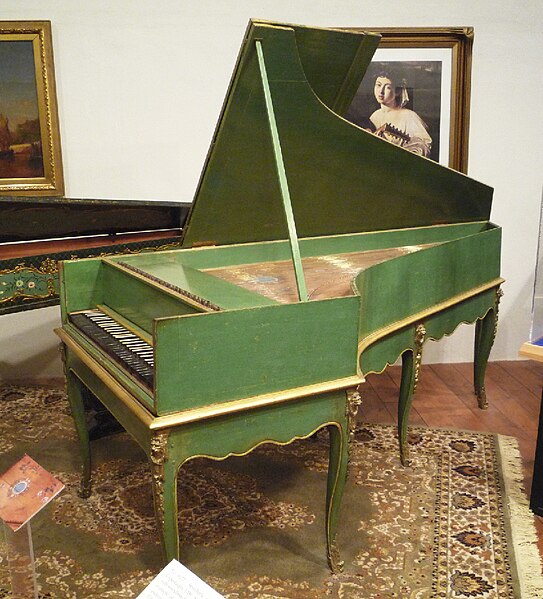 |
| Earliest French grand piano known to survive |
I know it sounds a bit crazy, but it's worth the trip! Think of it as a pilgrimage.
 |
Entranceway to The National Music Museum
|
Hmmm, to go East or West from Vermillion, SD. Does it really matter?
How about San Francisco? Jascha Heifetz' 1742 Guarnerius del Gesu is sometimes on display at the
Legion of Honor, part of the Fine Arts Museums of San Francisco. Definitely check to see if the violin is on display. Luckily, if it is not on display, you can hear it being played by the concertmaster of the San Francisco Symphony.
 |
| Stuart Canin playing Heifetz' 1742 del Gesu violin, the 'David' |
Take a swing to Southern California to
The Museum of Making Music in Carlsbad, CA. While they do not have the great old Italian stringed instruments that will make you tweet up a storm, they have some really cool displays on the musical instrument industry. Sponsored by the National Association of Music Merchandisers (NAMM).
Time to head East. Stop in at the world's largest musical instrument museum, appropriately named the
Musical Instrument Museum in Phoenix, AZ. Founded by ex Target CEO Robert J. Ulrich, the museum has wonderful collections of instruments from all over the world. An ethnomusicologist's dream!
 |
| The Schubert Club in St. Paul, MN |
I know it's a long trek, but it's time to head up to St. Paul, MN. Stop by the shop while you're in town!
Fein Violins at 1850 Grand Ave. in St. Paul, MN.
The Schubert Club Museum has an excellent keyboard and manuscript collection. Try to schedule your visit so that you are here for one of their wonderful concerts, like cellist
Alisa Weilerstein or the great violinist
Anne-Sophie Mutter.
Once you've spent an adequate amount of time in St. Paul and that quaint little town across the Mississippi River the locals call Minneapolis (a week or two should suffice!), head further East to Ann Arbor, MI and the
Stearns Collection of Musical Instruments at the University of Michigan. If you're a bow geek (and who among us is not?), they have an excellent display of violin bows collected by Jerry Tetewsky.
 |
| Axelrod Quartet in Smithsonian Collection |
Ready to really get your instrument geek on? Strike out for Washington, D.C. and
The Smithsonian's collection of almost 8,000 instruments, 65% of which are held by the Smithsonian Chamber Music Society. They have the 'Servais' Stradivarius cello of 1710 as well as other beautiful Stradivarius, Amati and other great instruments. I very much appreciate the tremendous effort that the Smithsonian makes to have these instruments played, recorded, and heard in concert!
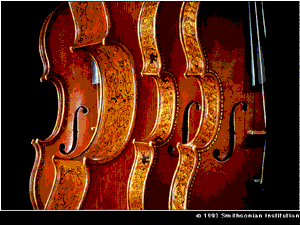 |
| Stradivarius violins and viola, The Smithsonian |
"I'm taking a trip/ I'm leaving today". Yes, we cannot forget about New York, New York and the
Metropolitan Museum of Art's Musical Instrument Collection. Stradivaris, Guarneris, and great bows. Go there by June 30, 2013 and get to see the addition of the
Lam Collection of Rare Italian Stringed Instruments. More Guarneris, Stradivaris, and Amatis!
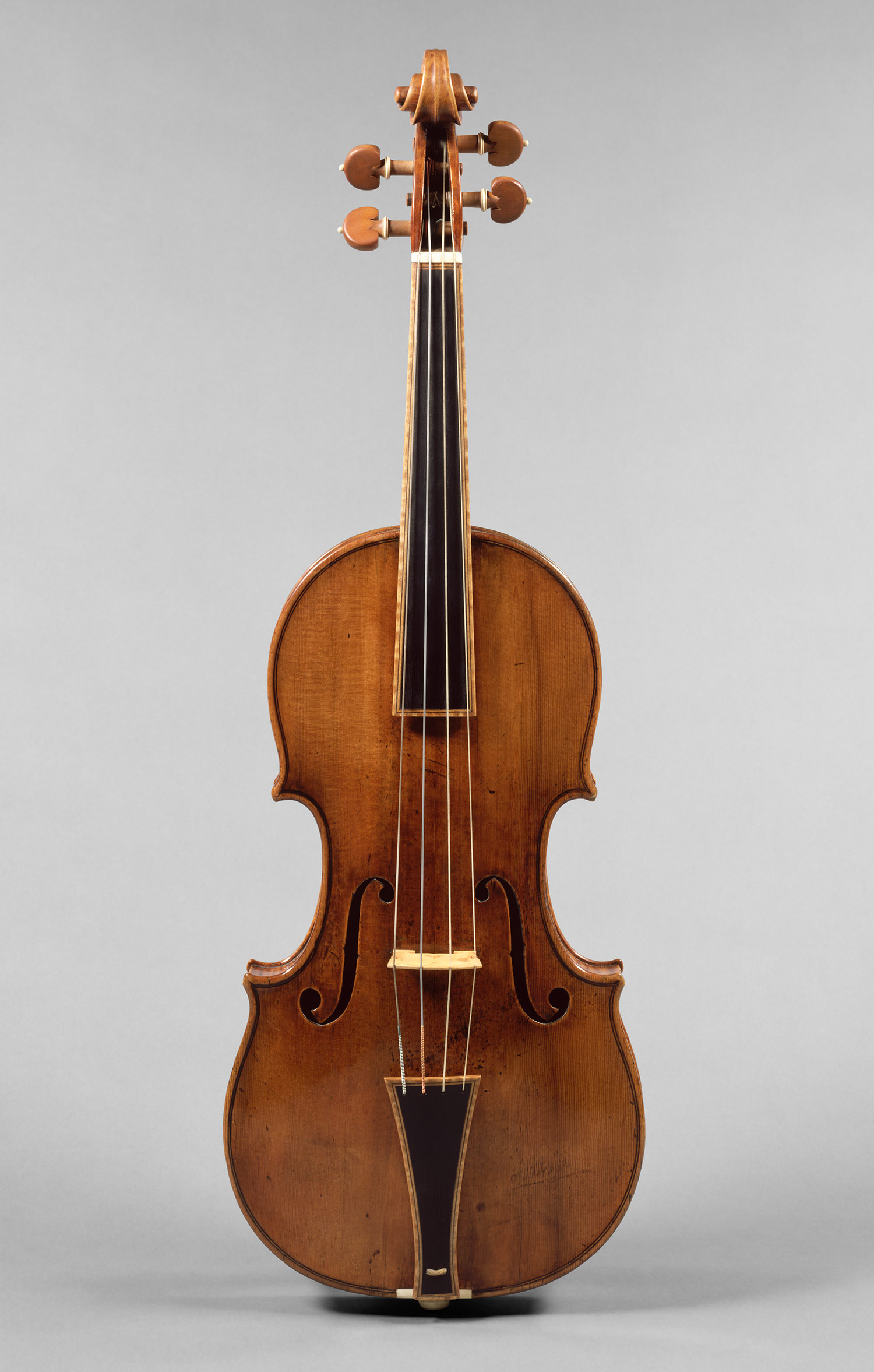 |
Stradivarius violin, Cremona, 1693, at the 'Met'
|
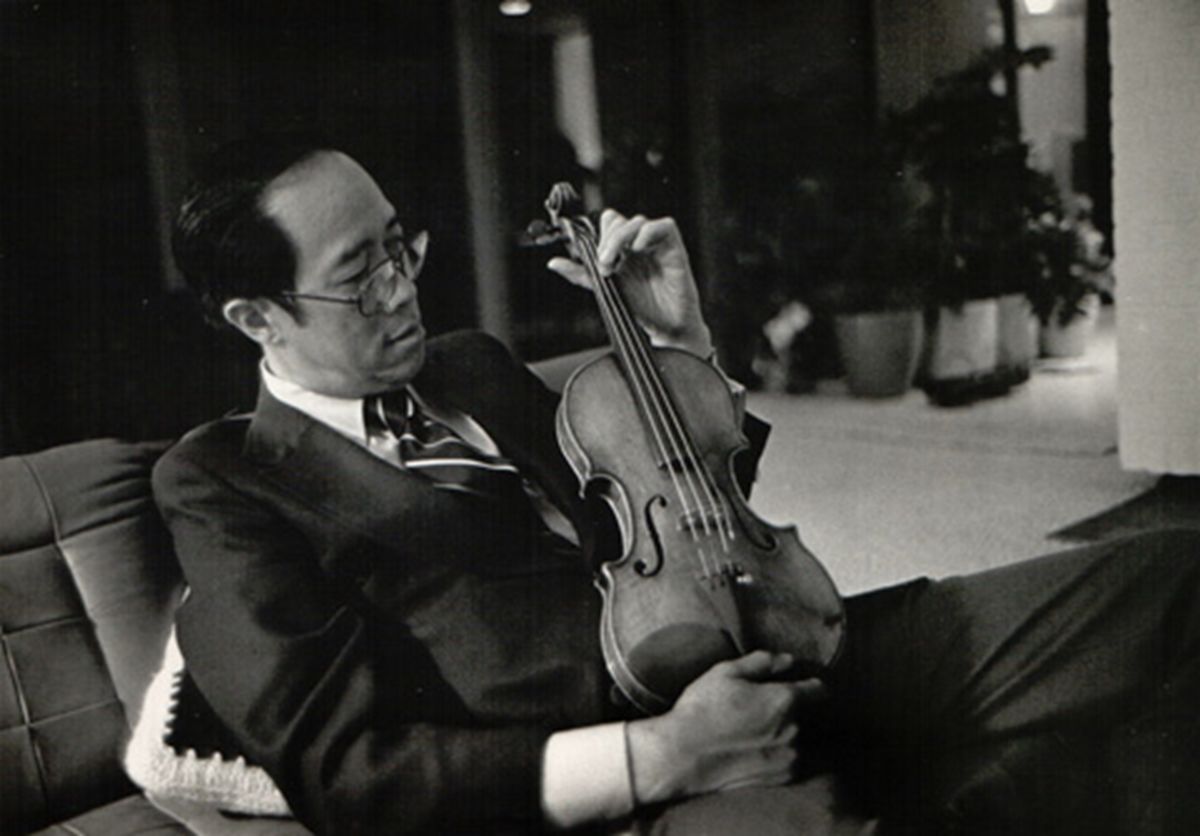 |
| Sau-wing Lam with one of his rare Italian violins |
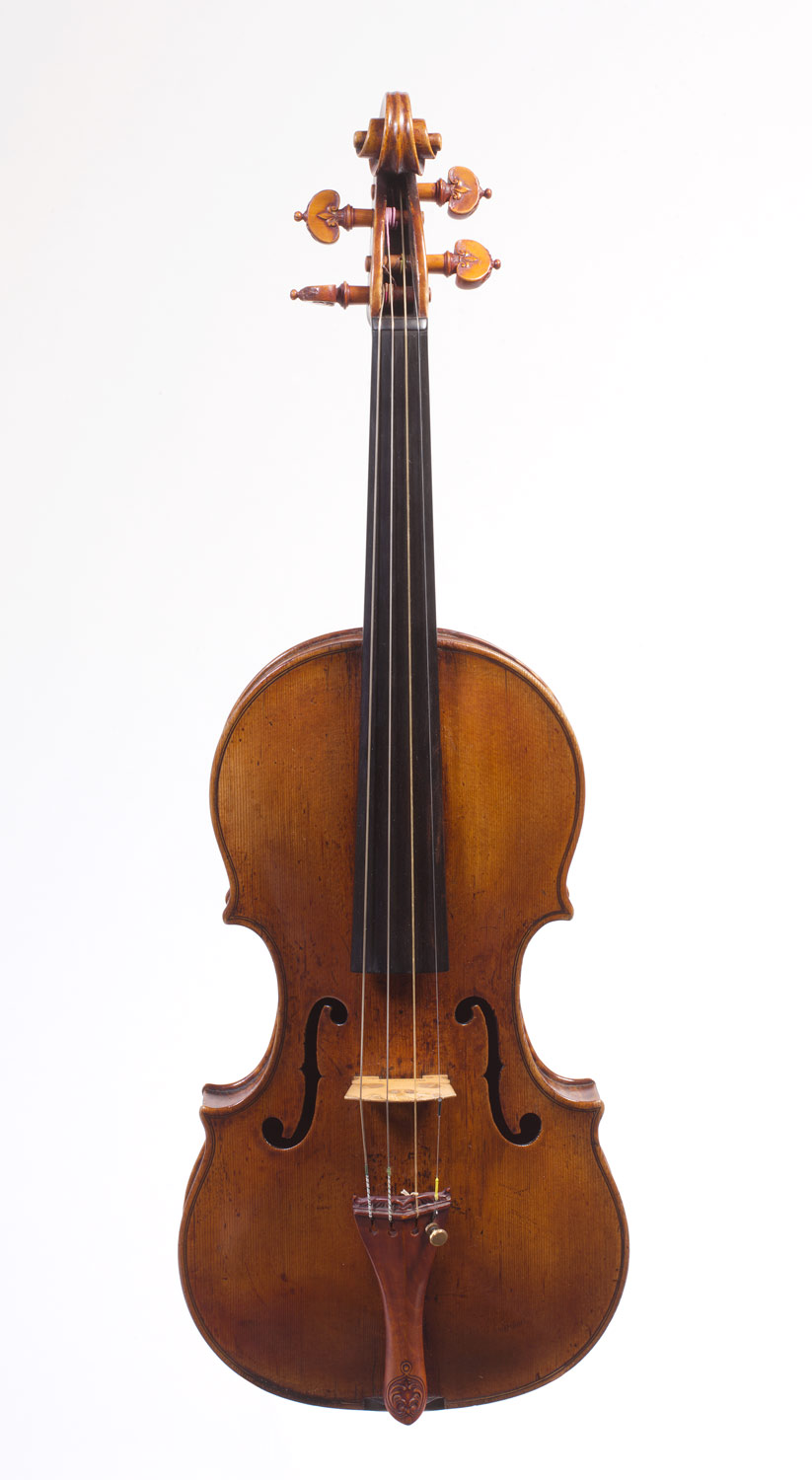 |
| Andrea Amati violin, Cremona circa 1560, Metropolitan Museum of Art |
OK, chowder heads, it's time to head to New England. Head towards Boston but make a pit stop at the
Yale University Musical Instrument Collection. They have a large collection, including the Emil Hermann Collection of Stringed Instruments and the Belle Skinner Collection of Old Musical Instruments. A visit to this museum is worthwhile if you see only one very special violin- A three-quarter size Antonius Stradivarius violin made in 1736. It bears Stradivarius' label, plus a second handwritten label "D'Anni 92" [at my age of 92]. This important violin was one of the last instruments Stradivarius made and also establishes his birth year as 1644.
 |
| three-quarter size violin by Antonius Stradivarius, Cremona, 1736 |
Hungry for some beans? The
Boston's Museum of Fine Arts Musical Instrument Collection has some great old Italian and French instruments. They also have a wonderful collection of violins from early New England luthiers such as the White family and Thomas Dudley Paine. One of the few violins that I keep for myself and play on whenever I get the chance is a violin made by Thomas D. Paine. Great maker!
Time to head home? No way! Get your passport picture updated. We're heading for Europe next.





















No comments:
Post a Comment